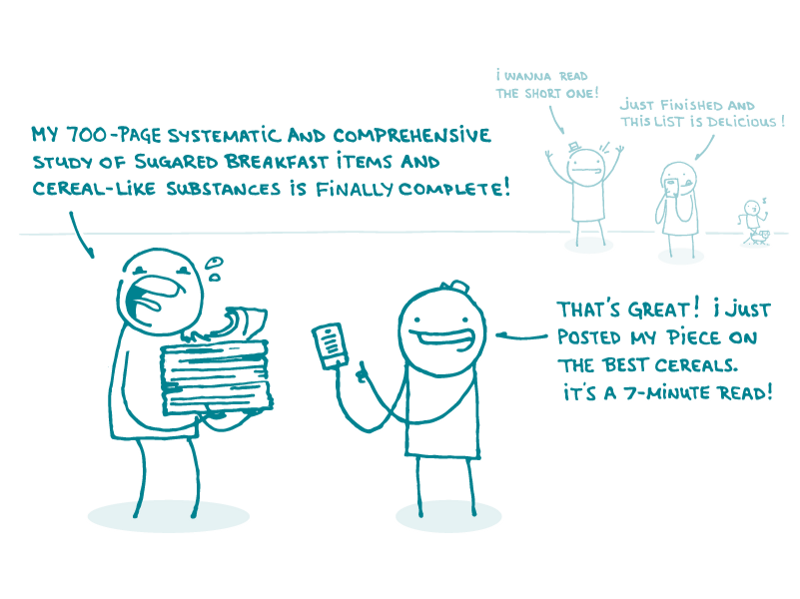
If you’re a health nerd, you’ve probably done your fair share of academic writing. Maybe you’ve even presented a scientific poster. Bravo! The scientific community needs you. Health care professionals appreciate you. But does anyone outside those fields have any idea what you’re talking about?
We get it, dear readers. Academic research requires a ton of smarts — and it’s tempting to use all that smarty-pants language when writing up the results. But as plain language advocates and health literacy lovers, we declare that the time has come to apply our trusty best practices to academic writing.
Use the tips below when you write up your next batch of brilliant findings.
Set your content up for the web. It’s a good bet that your writing will appear online, so make it web friendly.
- Break up walls of text into short chunks so they’re more approachable
- Add descriptive headers to help readers skim for the info they need
- Use a bulleted list if you’ve got a bunch of items in a sentence
Choose your words carefully. In scientific writing, you’re gonna have some science-y words. But keep in mind that your readers may not know your lingo. So use words everyone can understand.
- Skip unnecessary jargon — for example, say “participants with high blood pressure” not “subjects with hypertension”
- Use necessary jargon terms once, then swap ’em out — if you write “We researched the Supercalifragilisticexpialidocious gene (also known as the Mary Poppins gene),” stick with “Mary Poppins gene” moving forward
Trim the fat. Gone are the minimum page requirements of your college years. So forget adding unnecessary words to hit the page count — in the real world, shorter content is often best.
- Ditch phrases for single words, like “weekly” instead of “on a weekly basis”
- Keep it to one thought per sentence — punctuation is your friend!
And a bonus tip for all you poster session presenters: make a #BetterPoster by stating the main point in a big, easy-to-read font.
The bottom line: Use plain language principles in academic writing — that way, people outside your field can understand it, too.
Browse recent posts